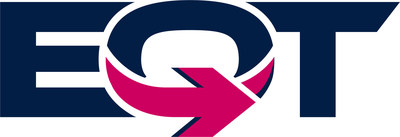These Breaking News are Brought to You by:
EQT Announces Strategic Bolt-On Acquisition and Doubles Share Repurchase Program to $2 Billion
“PITTSBURGH, Sept. 6, 2022 /PRNewswire/ — EQT Corporation (NYSE: EQT) today announced that it has entered into a purchase agreement with THQ Appalachia I, LLC (“Tug Hill”) and THQ-XcL Holdings I, LLC (“XcL Midstream”) whereby to which EQT has agreed to acquire Tug Hill’s upstream assets and XcL Midstream’s gathering and processing assets, for total consideration of $5.2 billion. Tug Hill and XcL Midstream are backed by equity commitments from funds managed by Quantum Energy Partners. The transaction is expected to close in the fourth quarter of 2022, with an effective date of July 1, 2022. Subject to the transaction close and EQT’s regular board approval process, Wil VanLoh, Founder and CEO of Quantum Energy Partners, will join EQT’s board of directors.
Transaction Highlights:
- Strategic bolt-on adds ~800 MMcfe/d in the core of southwest Appalachia
- ~90,000 core net acres offsetting EQT’s existing core leasehold in West Virginia, 96% operated working interest, 83% net revenue interest
- ~300 remaining net risked locations, which compete favorably with EQT’s adjacent assets and provide additional wet gas production optionality
- 11 years of inventory at maintenance capital levels
- High-margin assets expected to generate free cash flow(1) (“FCF”) at average natural gas prices above ~$1.35 per MMBtu over the next 5 years
- Integrated midstream facilities provide superior economics and margin capture
- 95-miles of owned and operated midstream gathering systems connected to every major long-haul interstate pipeline in southwest Appalachia
- 1.0 Bcfe/d rich gas trunkline and 3.5 Bcfe/d lean gas trunkline with 600 MMcf/d of compression capacity, 225 MMcf/d Clearfork processing plant, and 20 MBbls/d of condensate stabilization
- Midstream capital requirements set to decline materially, driving an expected ~4x increase in midstream FCF(1) generation over the next two years
- Assets acquired at attractive valuation with immediate accretion
- Acquiring combined upstream and midstream assets at 2.7x next-twelve-month (“NTM”) EBITDA (1), 27% NTM FCF yield(1)
- Upstream-only valuation of 2.3x NTM EBITDA(1), 33% NTM FCF yield(1)
- Purchase price implies long-term natural gas price of <$3.00 per MMBtu or a ~40% discount to current long-term strip
- 5-10% average accretion to FCF per share(1) expected over the next five years
- Conservatively assumed no synergies; potential for $80+ million per annum
- Leverage-neutral transaction, maintains Investment Grade balance sheet metrics
- Pro forma YE23 net leverage(1) of ~0.0x
- Maintaining long-term leverage(1) target of 1.0-1.5x at $2.75 gas
- Transaction further improves the durability of EQT’s free cash flow generation
- Integrated cost structure and liquids yield drive average pro forma FCF(1) breakeven price down ~$0.15 per MMBtu through 2027
- Pro forma 2023 FCF(1) expected to exceed $6.0 billion, with long-term annual FCF(1) expected to average $5.0+ billion at recent strip
- Value enhancing deal triggers material increase in shareholder returns; doubling share repurchase authorization to $2.0 billion and raising year-end 2023 debt reduction target to $4.0 billion
President and CEO Toby Z. Rice stated, “The acquisition of Tug Hill and XcL Midstream checks all the boxes of our guiding principles around M&A, including accretion on free cash flow per share, NAV per share, lowering our cost structure and reducing business risk, while maintaining an investment grade balance sheet. The valuation metrics are compelling and accretion from the deal should lower our NYMEX free cash flow(1) breakeven price by approximately $0.15 per MMBtu, which gives us greater free cash flow durability through the cycle. As a result of even more confidence in the sustainability of our business, we are enhancing our shareholder returns framework by doubling our share repurchase authorization to $2.0 billion and increasing our year-end 2023 debt reduction goal from $2.5 billion to $4.0 billion.”
Wil VanLoh, Founder and CEO of Quantum Energy Partners, said, “We are extremely pleased to have entered into this transaction and, in doing so, look forward to becoming a core shareholder in EQT and working closely with the EQT management team and board to enhance the long-term value of the company. We believe the company is in a uniquely strong position as the largest producer of natural gas in the country, with a differentiated track record of operational excellence, a deep core inventory base and a peer-leading commitment to ESG. The Tug Hill and XcL Midstream assets are complementary to EQT’s existing footprint, and we believe the company is now positioned to create even more value for its shareholders through this highly strategic combination. I’ve admired Toby’s leadership and vision since assuming the role of CEO and I’m excited about the opportunity to join EQT’s board of directors upon transaction close. I am also incredibly thankful to have had the opportunity to partner with the Tug Hill and XcL teams over the past 8 years. They are a values-driven, creative and entrepreneurial group of professionals that have been great partners and close friends.”
Michael Radler, CEO of Tug Hill and XcL Midstream said, “I am very proud of the Tug Hill and XcL Midstream teams and the amazing job they have done in building premier upstream and midstream companies in the heart of southwest Appalachia. Quantum has been a great partner and stood beside us as we built these companies over the last decade. People are what make companies great, and EQT, Tug Hill, XcL Midstream and Quantum have great people with shared values. We have long admired EQT and believe they are our natural acquiror given the synergies between the businesses. Since stepping into the CEO role, Toby has systematically changed EQT, internally and externally, into a world class natural gas producer that is focused on great culture, sound economic decision making and maximizing shareholder value. I admire his ability to execute on the plan he has outlined, and I believe in his future goals. EQT is the face of the new energy paradigm. His vision around U.S. LNG is something we believe in and because of our significant ownership position, are excited to be a part of that vision.”
|
(1) |
A non-GAAP financial measure. See the Non-GAAP Disclosures section of this news release for the definition of, and other important information regarding, this non-GAAP financial measure. |
Transaction Financing:
The total purchase price of the transaction is $5.2 billion, subject to customary adjustments, consisting of $2.6 billion in cash and approximately $2.6 billion in EQT common stock.
EQT expects to fund the $2.6 billion of cash consideration with cash on hand, borrowings under its revolving credit facility and/or through one or more financing or debt capital markets transactions, subject to market conditions and other factors. Royal Bank of Canada, Mizuho Bank, Ltd. and PNC Bank, National Association, have jointly provided $2.5 billion of committed financing in connection with the transaction and EQT has access to $2.2 billion of liquidity under its unsecured credit facility.
The stock consideration consists of 55 million shares of EQT common stock representing $2.6 billion, based on the 15-day volume-weighted average price as of September 2, 2022.
The transaction is expected to close in the fourth quarter of 2022, subject to satisfaction of customary closing conditions. Post effective date purchase price adjustments will be split 50/50 against the cash and equity consideration and are expected to result in a total purchase price reduction of approximately $300 to $400 million at closing.
The transaction was unanimously approved by EQT’s Board of Directors.
RBC Capital Markets served as financial advisor to EQT, and Kirkland & Ellis LLP is serving as EQT’s legal counsel on the transaction. J.P. Morgan Securities and Wells Fargo Securities served as financial advisors to Tug Hill and XcL Midstream and Vinson & Elkins LLP is serving as legal counsel to Tug Hill and XcL Midstream.
Conference Call and Webcast Information:
EQT will hold a conference call to discuss the details of the transaction at 5:00 p.m. ET today, September 6, 2022, which will be broadcast live via webcast. To access the live audio webcast, visit EQT’s investor relations website at ir.eqt.com. A replay will be archived and available in the same location after the conclusion of the live event.
Investor Contact:
Cameron Horwitz
Managing Director, Investor Relations & Strategy
412.395.2555
Cameron.Horwitz@eqt.com
About EQT Corporation
EQT Corporation is a leading independent natural gas production company with operations focused in the cores of the Marcellus and Utica Shales in the Appalachian Basin. We are dedicated to responsibly developing our world-class asset base and being the operator of choice for our stakeholders. By leveraging a culture that prioritizes operational efficiency, technology and sustainability, we seek to continuously improve the way we produce environmentally responsible, reliable and low-cost energy. We have a longstanding commitment to the safety of our employees, contractors, and communities, and to the reduction of our overall environmental footprint. Our values are evident in the way we operate and in how we interact each day – trust, teamwork, heart, and evolution are at the center of all we do.
EQT Management speaks to investors from time to time and the analyst presentation for these discussions, which is updated periodically, is available via EQT’s investor relations website at https://ir.eqt.com.
Cautionary Statements
This news release contains certain forward-looking statements within the meaning of Section 21E of the Securities Exchange Act of 1934, as amended, and Section 27A of the Securities Act of 1933, as amended. Statements that do not relate strictly to historical or current facts are forward-looking. Without limiting the generality of the foregoing, forward-looking statements contained in this news release specifically include plans, expectations, goals, projections, and statements about the benefits of the proposed transaction involving EQT Corporation (the Company) and Tug Hill, including projected impacts on the Company’s free cash flow and EBITDA, deleveraging, breakeven prices, production volumes and inventory duration; the Company’s plans, objectives, strategies, expectations and intentions with respect to the assets to be acquired in such proposed transaction, including the timing of integration of such assets; potential financing sources for funding the purchase price for the proposed transaction; the projected final adjusted purchase price; and the expected timing of closing the proposed transaction.
The forward-looking statements included in this news release involve risks and uncertainties that could cause actual results to differ materially from projected results. Accordingly, investors should not place undue reliance on forward-looking statements as a prediction of actual results. The Company has based these forward-looking statements on current expectations and assumptions about future events, taking into account all information currently known by the Company. While the Company considers these expectations and assumptions to be reasonable, they are inherently subject to significant business, economic, competitive, regulatory and other risks and uncertainties, many of which are difficult to predict and beyond
the Company’s control. These risks and uncertainties include, but are not limited to, volatility of commodity prices; the costs and results of drilling and operations; uncertainties about estimates of reserves, identification of drilling locations and the ability to add proved reserves in the future; the assumptions underlying production forecasts; the quality of technical data; the Company’s ability to appropriately allocate capital and resources among its strategic opportunities; access to and cost of capital; the Company’s hedging and other financial contracts; inherent hazards and risks normally incidental to drilling for, producing, transporting and storing natural gas, natural gas liquids (NGLs) and oil; cyber security risks; availability and cost of drilling rigs, completion services, equipment, supplies, personnel, oilfield services and water required to execute the Company’s exploration and development plans, including as a result of the COVID-19 pandemic; risks associated with operating primarily in the Appalachian Basin and obtaining a substantial amount of the Company’s midstream services from Equitrans Midstream Corporation; the ability to obtain environmental and other permits and the timing thereof; government regulation or action, including regulations pertaining to methane and other greenhouse gas emissions; negative public perception of the fossil fuels industry; increased consumer demand for alternatives to natural gas; environmental and weather risks, including the possible impacts of climate change; and disruptions to the Company’s business due to acquisitions and other significant transactions. These and other risks are described under Item 1A, “Risk Factors,” and elsewhere in the Company’s Annual Report on Form 10-K for the year ended December 31, 2021 and other documents the Company files from time to time with the Securities and Exchange Commission. In addition, the Company may be subject to currently unforeseen risks that may have a materially adverse impact on it.
Any forward-looking statement speaks only as of the date on which such statement is made, and the Company does not intend to correct or update any forward-looking statement, whether as a result of new information, future events or otherwise, except as required by law.
EBITDA is defined as net income (loss), excluding interest expense, income tax (benefit) expense, depreciation and depletion, (gain) loss on sale/exchange of long-lived assets, impairments, the revenue impact of changes in the fair value of derivative instruments prior to settlement and certain other items that impact comparability between periods. EBITDA is a non-GAAP supplemental financial measure used by the Company’s management to evaluate period-over-period earnings trends. The Company’s management believes that this measure provides useful information to external users of the Company’s consolidated financial statements, such as industry analysts, lenders and ratings agencies. Management uses EBITDA to evaluate earnings trends because the measure reflects only the impact of settled derivative contracts; thus, the measure excludes the often-volatile revenue impact of changes in the fair value of derivative instruments prior to settlement. The measure also excludes other items that affect the comparability of results or that are not indicative of trends in the ongoing business. EBITDA should not be considered as an alternative to net income (loss) presented in accordance with GAAP.
The Company has not provided projected net income (loss) or a reconciliation of projected EBITDA to projected net income (loss), the most comparable financial measure calculated in accordance with GAAP. Net income (loss) includes the impact of depreciation and depletion expense, income tax (benefit) expense, the revenue impact of changes in the projected fair value of derivative instruments prior to settlement and certain other items that impact comparability between periods and the tax effect of such items, which may be significant and difficult to project with a reasonable degree of accuracy. Therefore, projected net income (loss), and a reconciliation of projected EBITDA to projected net income (loss), are not available without unreasonable effort.
Adjusted operating cash flow is defined as net cash provided by operating activities less changes in other assets and liabilities. Free cash flow is defined as adjusted operating cash flow less accrual-based capital expenditures, excluding capital expenditures attributable to noncontrolling interests. Free cash flow yield is defined as free cash flow divided by market capitalization. Free cash flow per share is defined as free cash flow divided by the Company’s weighted average common shares outstanding. Adjusted operating cash flow, free cash flow, free cash flow yield and free cash flow per share are non-GAAP supplemental financial measures used by the Company’s management to assess liquidity, including the Company’s ability to generate cash flow in excess of its capital requirements and return cash to shareholders. The Company’s management believes that these measures provide useful information to external users of the Company’s consolidated financial statements, such as industry analysts, lenders and ratings agencies. Adjusted operating cash flow, free cash flow, free cash flow yield and free cash flow per share should not be considered as alternatives to net cash provided by operating activities or any other measure of liquidity presented in accordance with GAAP.
The Company has not provided projected net cash provided by operating activities or a reconciliation of projected adjusted operating cash flow, free cash flow, free cash flow yield or free cash flow per share to projected net cash provided by operating activities, the most comparable financial measure calculated in accordance with GAAP. The Company is unable to project net cash provided by operating activities for any future period because this metric includes the impact of changes in operating assets and liabilities related to the timing of cash receipts and disbursements that may not relate to the period in which the operating activities occurred. The Company is unable to project these timing differences with any reasonable degree of accuracy without unreasonable efforts such as predicting the timing of its payments and its customers’ payments, with accuracy to a specific day, months in advance. Furthermore, the Company does not provide guidance with respect to its average realized price, among other items, that impact reconciling items between net cash provided by operating activities and adjusted operating cash flow, free cash flow, free cash flow yield and free cash flow per share. Natural gas prices are volatile and out of the Company’s control, and the timing of transactions and the income tax effects of future transactions and other items are difficult to accurately predict. Therefore, the Company is unable to provide projected net cash provided by operating activities, or the related reconciliation of projected adjusted operating cash flow, free cash flow, free cash flow yield or free cash flow per share to projected net cash provided by operating activities, without unreasonable effort.
Net debt is defined as total debt less cash and cash equivalents. Total debt includes the Company’s current portion of debt, credit facility borrowings, senior notes and note payable to EQM Midstream Partners, LP. Leverage is defined as net debt divided by EBITDA. Net debt is a non-GAAP supplemental financial measure used by the Company’s management to evaluate leverage since the Company could choose to use its cash and cash equivalents to retire debt. The Company’s management believes that this measure provides useful information to external users of the Company’s consolidated financial statements, such as industry analysts, lenders and ratings agencies. Net debt should not be considered as an alternative to total debt presented in accordance with GAAP.
The Company has not provided a reconciliation of projected net debt to projected total debt, the most comparable financial measure calculated in accordance with GAAP. The Company is unable to project total debt for any future period because total debt is dependent the timing of cash receipts and disbursements that may not relate to the periods in which the operating activities occurred. The Company is unable to project these timing differences with any reasonable degree of accuracy and therefore cannot reasonably determine the timing and payment of credit facility borrowings or other components of total debt without unreasonable effort. Furthermore, the Company does not provide guidance with respect to its average realized price, among other items that impact reconciling items between certain of the projected total debt and projected net debt, as applicable. Natural gas prices are volatile and out of the Company’s control, and the timing of transactions and the distinction between cash on hand as compared to credit facility borrowings are too difficult to accurately predict. Therefore, the Company is unable to provide a reconciliation of projected net debt to projected total debt, without unreasonable effort.













